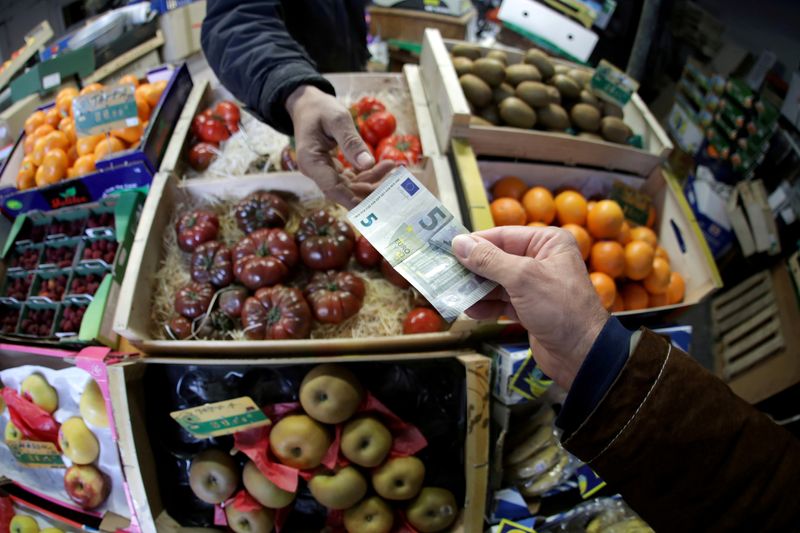BRUSSELS (Reuters) -Euro zone economic sentiment rose to a seven-month high in January on more optimism across all sectors except construction, with inflation expectations among consumers and companies both sharply down, data showed on Monday.
The European Commission's Economic Sentiment Index (ESI) rose to 99.9 this month, above an upwardly revised 97.1 in December -- the highest value of the index since June 2022.
The rising optimism underlines expectations that an expected economic downturn in the 20 countries sharing the euro, if there is one at all, is likely to be shallow, despite the energy price and cost of living crises and the war in Ukraine.
Paolo Grignani, economist at Oxford Economics, said the increase confirmed the worst was over for the euro zone.
But the improving sentiment, and therefore better economic growth prospects, would likely keep the European Central Bank raising interest rates to curb inflation that was above 9% in December against the bank's target of 2%.
"The gradual improvement in confidence will likely reassure the ECB of the necessity of more hikes in the coming months," Grignani said.
The monthly Commission survey showed inflation expectations among consumers falling to 17.7 in January from 23.2 in December, well below the long-term average of 20.0, a trend that is likely to please the ECB.

Selling price expectations among manufacturers also dropped sharply to 31.9 in January from 37.8 in December in a sign inflationary pressures early in the pipeline were receding too.
The Commission said optimism in industry rose to 1.3 from -0.6 in December and in services to 10.7 from 7.7. The mood among consumers improved to -20.9 in January from -22.1 and in the retail sector to -0.8 from -2.7.